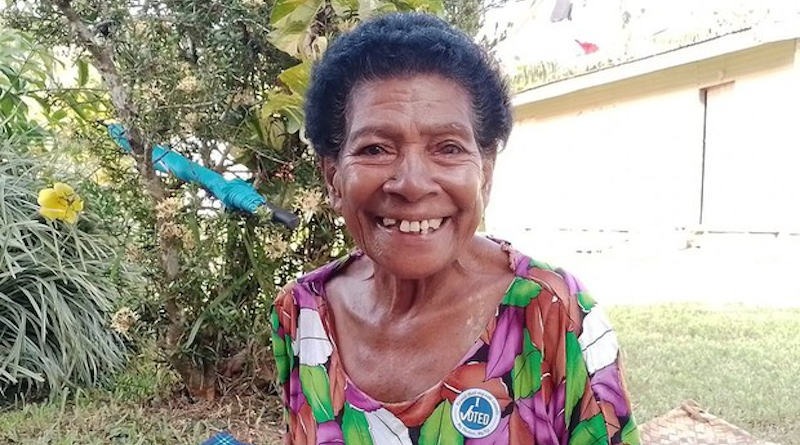Fiji: Military Commander Tells Soldiers To Respect Election Result
By BenarNews
By Stephen Wright
The results of Fiji’s election next week must be respected, the country’s military commander said in a speech that called on soldiers in the Pacific country with a history of coups to “not yield to our poorer selves.”
The Fiji First Party of Prime Minister Frank Bainimarama, who seized power in a 2006 coup, is vying for votes against the People’s Alliance led by another former coup leader and prime minister, Sitiveni Rabuka. Fiji First won 50 percent of votes in elections in 2018, down from 57 percent in 2014.
“Some of you will be content with the outcome but others may be not. Whatever your post-election disposition, this is a time for us to honor the democratic process by respecting the outcome of the votes,” military commander Maj. Gen. Ro Jone Kalouniwai said, according to text and audio of his speech published by Fijian media on Tuesday.
“It is also a time for us as an institution to live into our better selves and not yield to our poorer selves,” Kalouniwai said.
Fiji has had four coups since independence in 1970, partly a legacy of British colonial policies that restricted the economic activities of indigenous Fijians while bringing tens of thousands of indentured laborers from India in the late 19th century and early 20th century.
The first coup, in 1987, led by Rabuka, then a lieutenant colonel, exposed the divisions that had developed in Fiji over decades and followed the election defeat of a predominantly indigenous Fijian political party.
Fiji, with a population of nearly 1 million, is the second most populous Pacific island nation after Papua New Guinea. Indigenous Fijians are the majority and the proportion of Indian Fijians has dropped to about 38 percent from 50 percent in the 1980s because of emigration spurred by the coups.
Freedom House, which promotes civil rights and democracy, says a repressive climate in Fiji following the 2006 coup has eased since elections were held eight years later in 2014 and again in 2018.
But the ruling party continues to interfere with opposition activities and the judiciary is subject to political influence, Freedom House said in its 2021 assessment of political rights and civil liberties in Fiji.
Nine opposition politicians were detained and questioned by police in July 2021 after criticizing a government plan to change how indigenous land leases were administered.
Aiyaz Sayed-Khaiyum, the secretary general of Fiji First, is minister of elections as well as attorney general, which opposition parties say affects the independence of the Election Commission.
International observers have said the 2014 and 2018 election results, which kept Fiji First in power, broadly reflected the will of Fijians.
Early voting in the Dec. 14 election started on Monday for people in remote communities.
An international observer group led by Australia, India and Indonesia – and approved by Fiji’s government – is monitoring the elections. It said about 30 observers were assigned to the early voting.
On Vio Island, 19-year-old Aqela Sau was among 157 people eligible to vote on Tuesday.
Sau, voting for the first time, said she was excited to be part of the election, Fiji Broadcasting Corp. reported.
Sau also said she had been nervous as she had never been inside a polling station.

